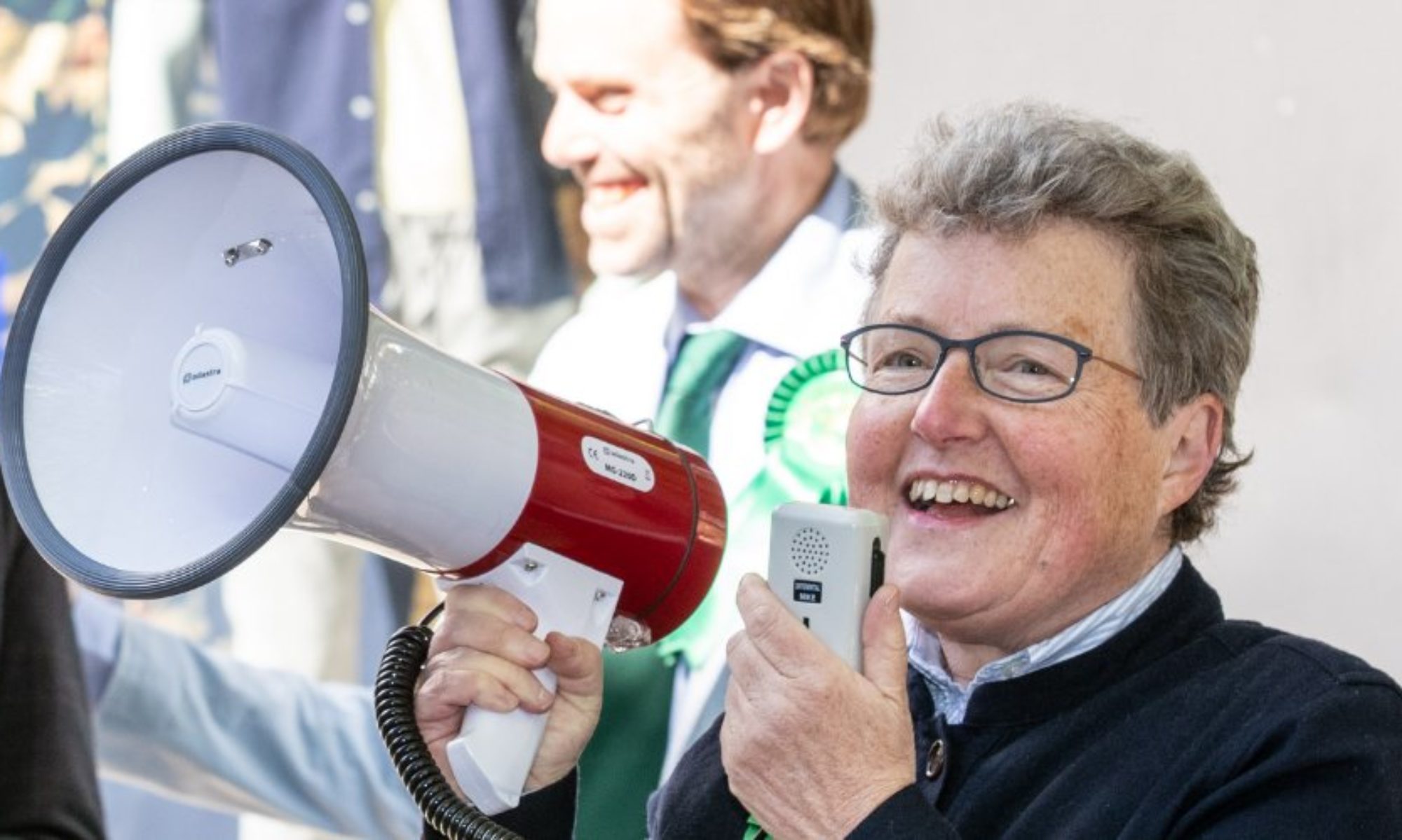Green Party MEP Catherine Rowett is calling for more investment in sustainable farming and an end to intensive chicken and pig farming in the East of England, in response to a major report Intergovernmental Panel on Climate Change (IPCC) report published today.
The IPCC report warns that humans’ current exploitation of 72% of the planet’s land is unsustainable and is contributing to rising temperatures that could threaten the land’s ability to sustain life. Soil, upon which humanity is entirely dependent, is being lost more than 100 times faster than it is being formed in ploughed areas; and lost 10 to 20 times faster even on fields that are not tilled.
Catherine Rowett MEP said “This report is more than a wake-up call, it is a dire warning that unless Governments take radical action to stop deforestation and soil degradation then millions will face starvation, and we will likely see millions of climate refugees. There is still time to save our planet, but we have to act now and act fast.”
The report’s authors say that demand for meat in particular is driving deforestation and greenhouse gas emissions. They note that reducing meat consumption is one of the biggest steps that could reduce emissions. In addition, use of agricultural fertilisers is thought to be one of the biggest contributors to climate change, responsible for as much greenhouse gas emissions as aviation. This is especially significant for the East of England as a major farming region which produces large amounts of cereal crops as well as poultry and pork.
Catherine Rowett MEP said:
“Britain’s breadbasket in East Anglia is particularly threatened by climate change, but the land we have here could also be part of the solution. If we can move away from meat-based diets and reduce the amount of land we use to feed chickens and pigs, we could free up large areas for nature, which is essential for reducing the alarming rate of global heating and for protecting valuable wildlife.
“We need EU funding to help small-scale farmers, who struggle to compete against intensive mega-agriculture, to set up and continue sustainable ways of farming that work with nature and not against it.
“In addition, moving to a more plant-based and more local diet could help feed more people, with less waste, and improve people’s health. It is encouraging to see that the IPCC scientists say we must factor environmental costs into food, and it is time we introduced taxes on the most damaging foods like red meat.”
The IPCC report also states that small-scale bioenergy – growing crops to be turned into fuel – could help reduce climate change, but warns that large-scale use of land to grow crops for fuel “could increase risks for desertification, land degradation, food security and sustainable development”.
Catherine Rowett said, “We should be doing all we can to transition to renewable sources of energy. However, the approach to bioenergy must be limited otherwise we risk more short-term profiteering from new cash crops and putting fuel over food.
“We should instead focus on reducing the need for energy by moving to a way of life that is within the limits of what the earth can sustain while supporting local farmers.”
Catherine Rowett MEP concluded by stressing the need for Governments to take action, affirming:
“There are some steps that individuals can take, such as moving to a more plant-based diet, but it will take a change in approach at government level, both here in the UK and across the world, to radically transform our economy, in the ways the science says we need to.”

